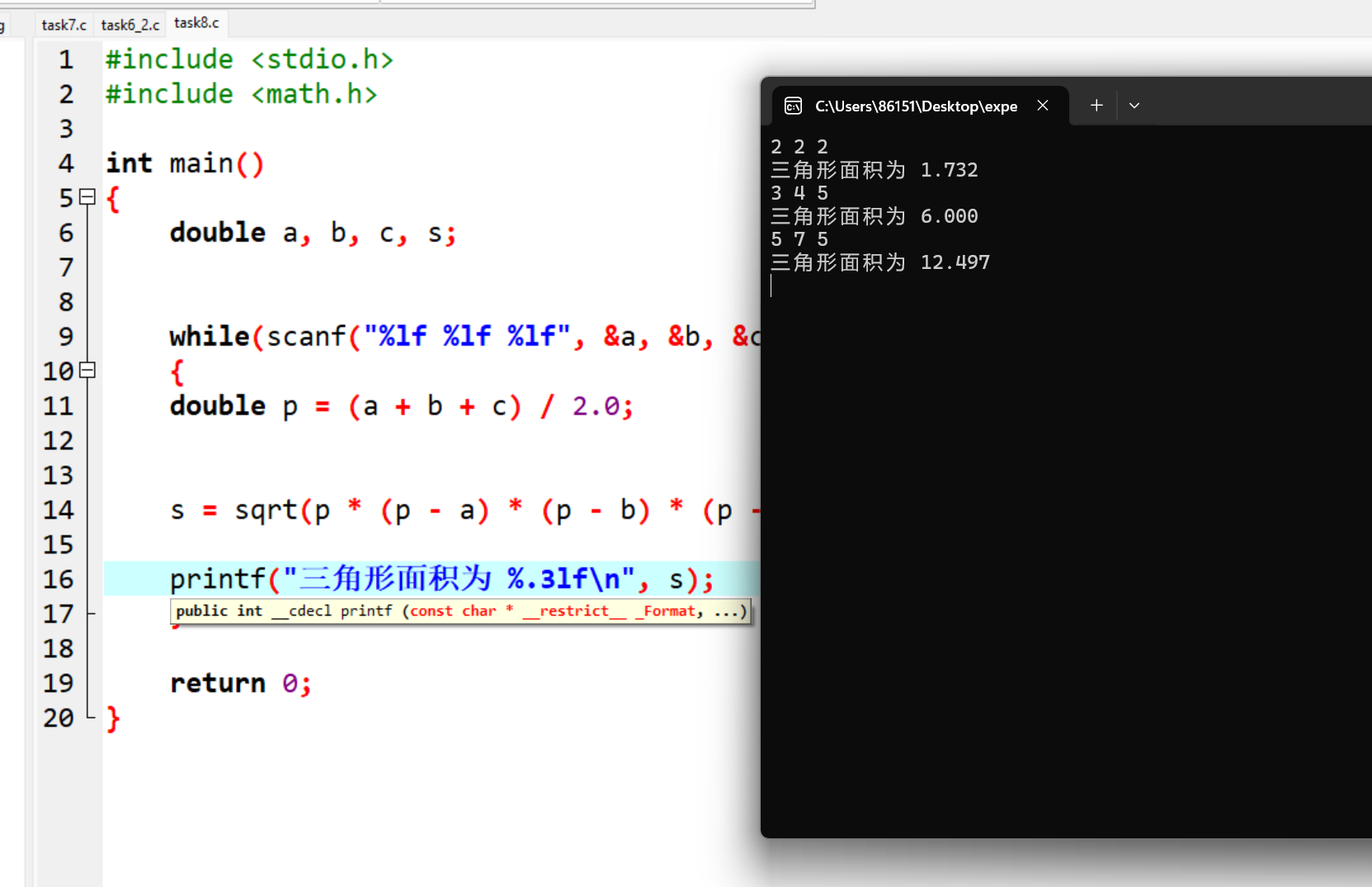`#include <stdio.h>
include<stdlib.h>
int main()
{ printf(” O \n”);
printf(” \n”);
printf(“I I\n”);
printf(” O \n”);
printf(” \n”);
printf(“I I\n”);
system(“pause”);
return 0;
}`
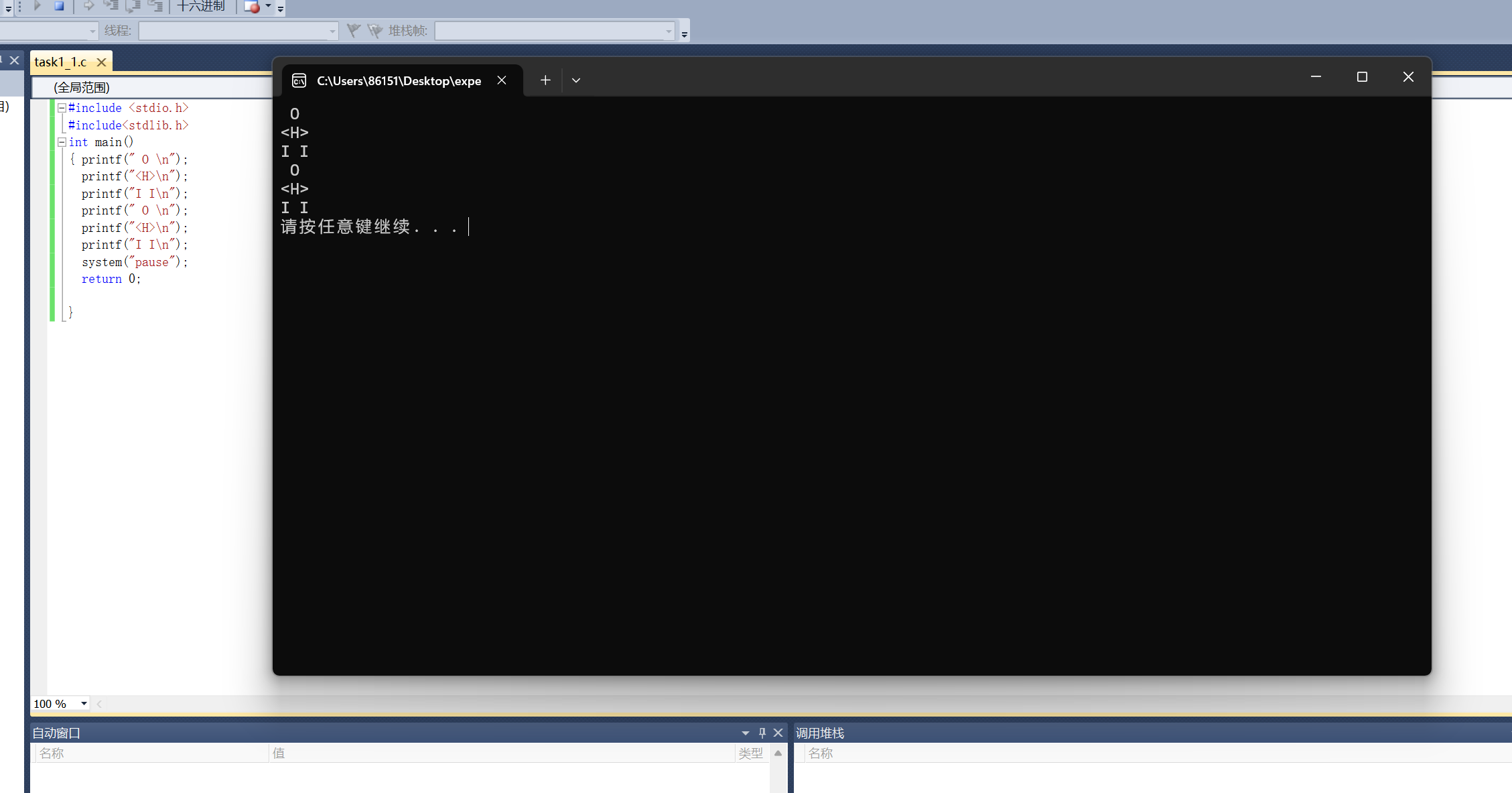
`#include <stdio.h>
include<stdlib.h>
int main()
{ printf(” O O \n”);
printf(” \n”);
printf(“I I I I\n”);
system(“pause”);
return 0;
}`
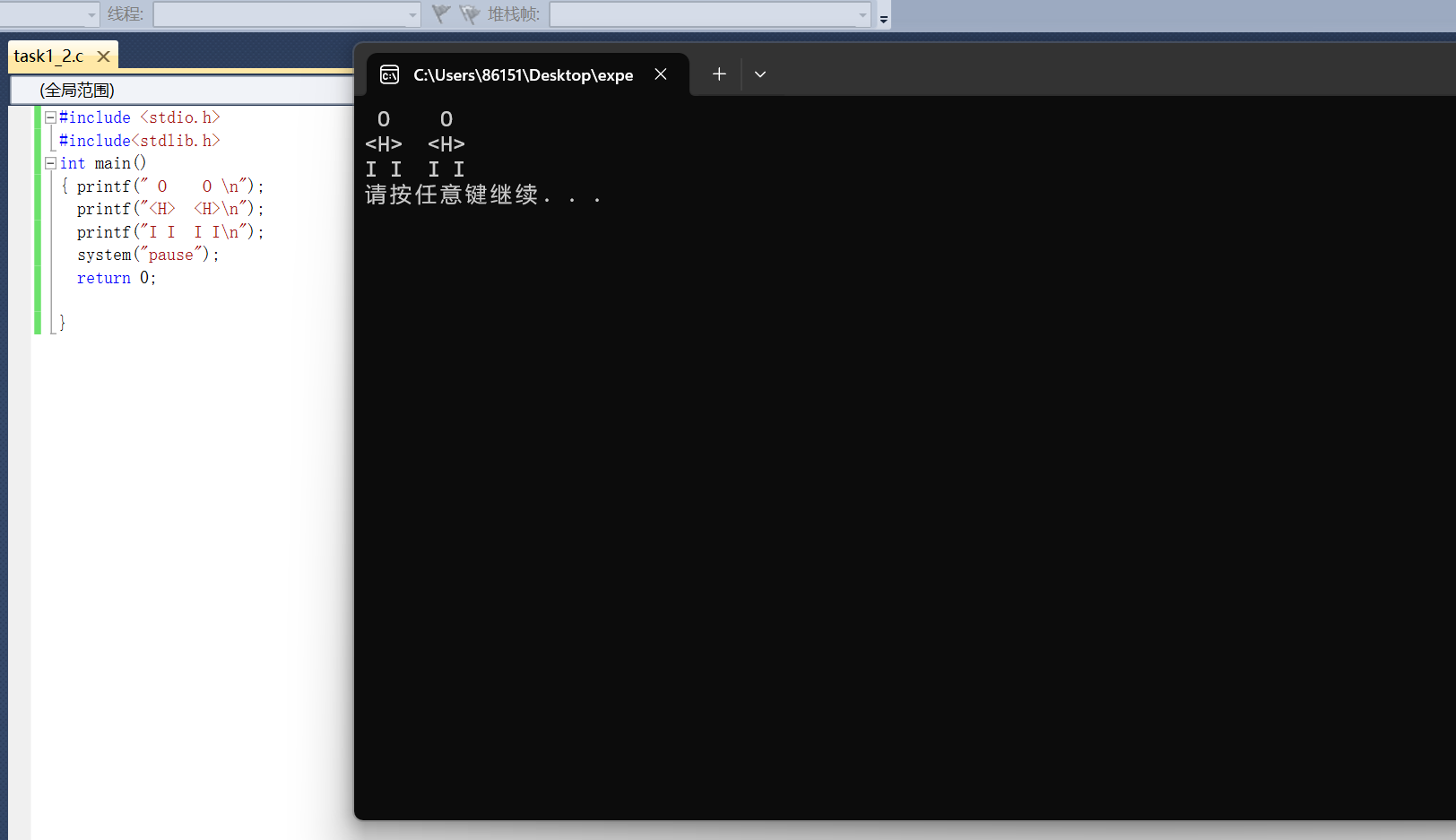
`#include <stdio.h>
include <stdlib.h>
int main()
{
float a, b, c;
scanf(“%f%f%f”, &a, &b, &c);
if((a+b>c)&&(a+c>b)&&(b+c>a))
printf(“能构成三角形\n”);
else
printf(“不能构成三角形\n”);
system(“pause”);
return 0;
}`

`#include <stdio.h>
include<stdlib.h>
int main()
{
char ans1, ans2; // 用于保存用户输入的答案
printf(“每次课前认真预习、课后及时复习了没? (输入y或Y表示有,输入n或N表示没有) :\n”);
ans1 = getchar(); // 从键盘输入一个字符,赋值给ans1
getchar(); // 思考这里为什么要加这一行。试着去掉这一行,看看对运行有没有影响。
printf(“\n动手敲代码实践了没? (输入y或Y表示敲了,输入n或N表示木有敲) : “);
ans2 = getchar();
if (ans1 == ‘y’ || ans1 == ‘Y’ && ans2 == ‘y’ || ans2 == ‘Y’)
printf(“\n罗马不是一天建成的, 继续保持哦\n”);
else
printf(“\n罗马不是一天毁灭的, 我们来建设吧\n”);
system(“pause”);
return 0;
}`
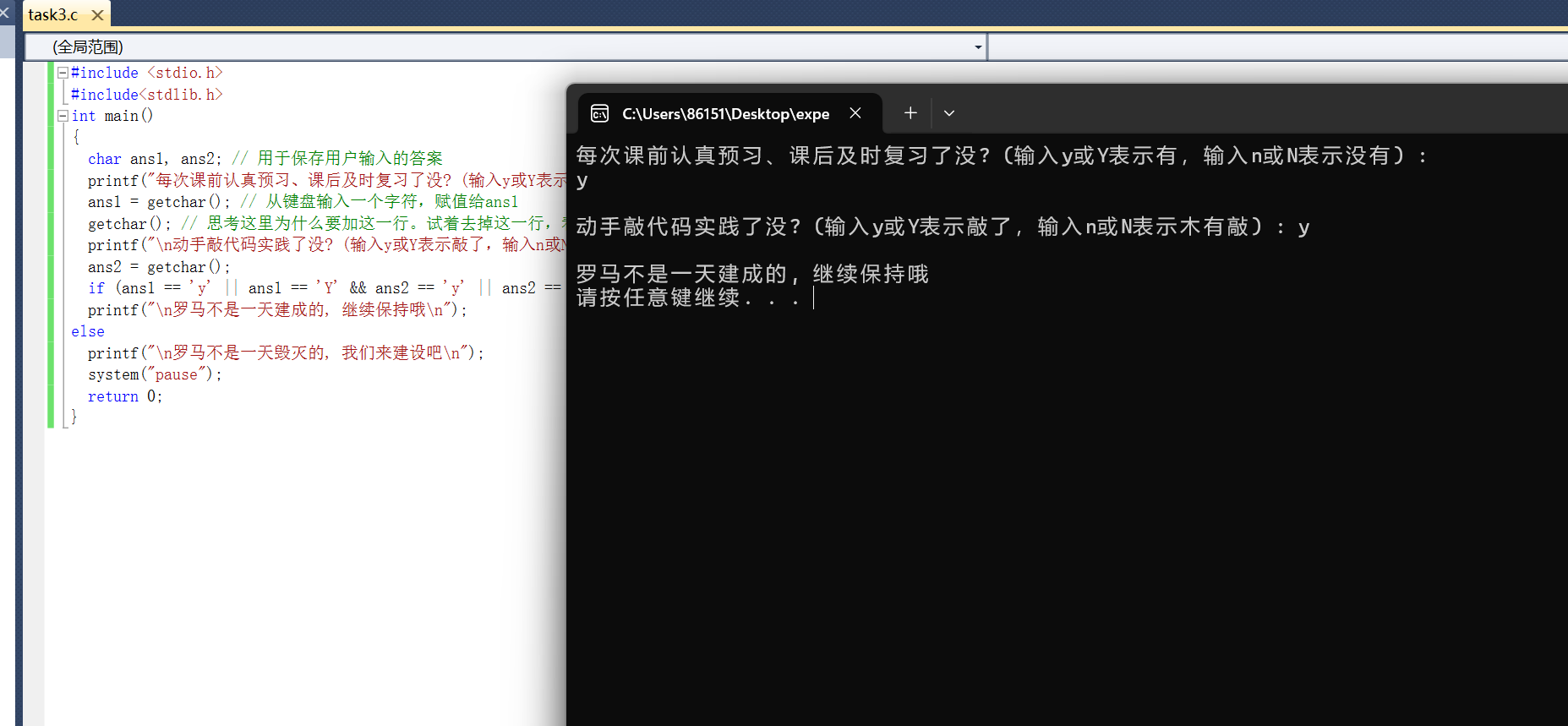
会在第一次输入后直接结束
`#include<stdio.h>
include<stdlib.h>
int main()
{
double x, y;
char c1, c2, c3;
int a1, a2, a3;
scanf("%d%d%d", &a1, &a2, &a3);
printf("a1 = %d, a2 = %d, a3 = %d\n", a1, a2, a3);
scanf(" %c%c%c", &c1, &c2, &c3);
printf("c1 = %c, c2 = %c, c3 = %c\n", c1, c2, c3);
scanf("%lf %lf", &x, &y);
printf("x = %lf, y = %lf\n", x, y);
system("pause");
return 0;
}`
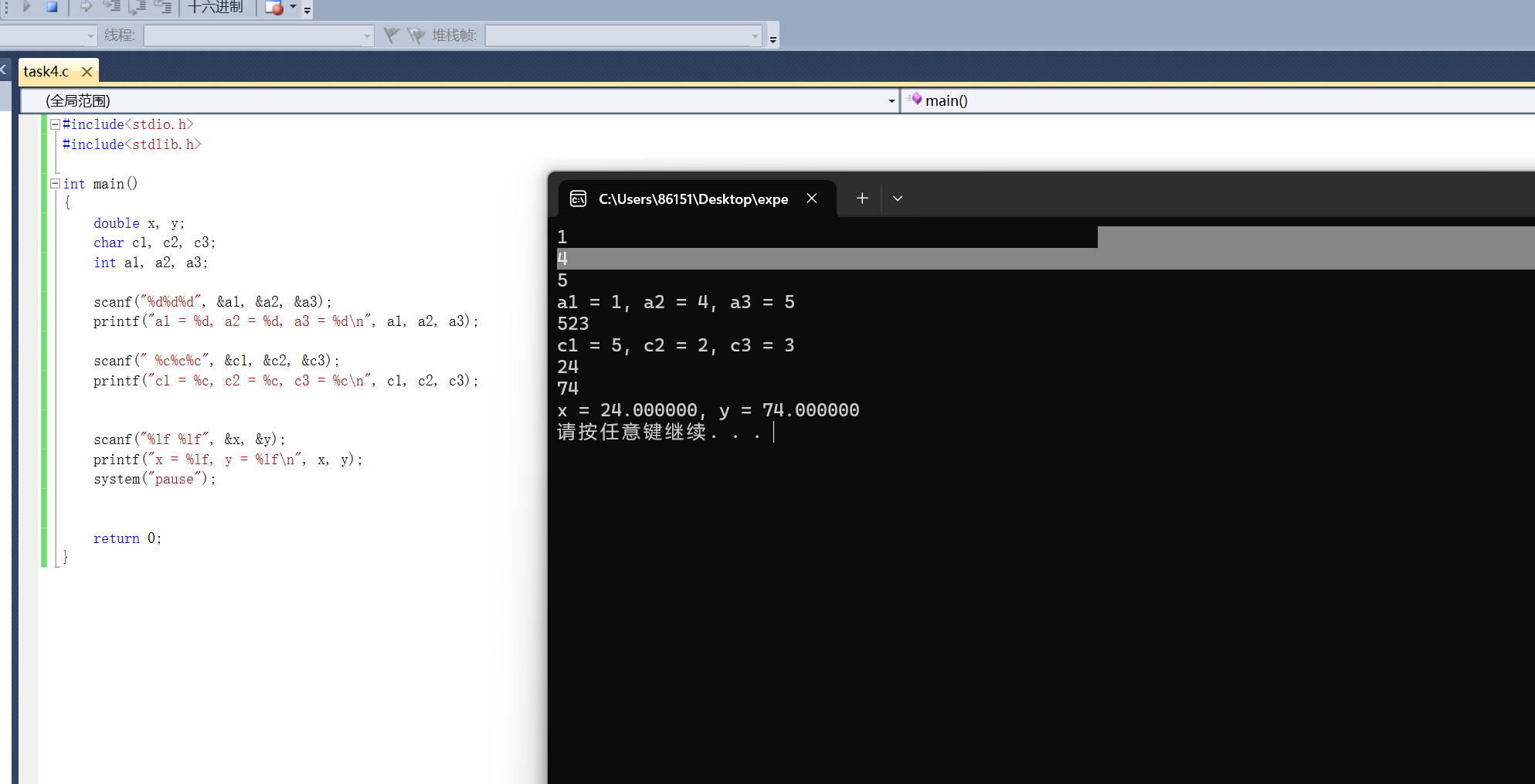
`#include <stdio.h>
include<stdlib.h>
int main()
{ int year;
year=1000000000/(3652460*60);
printf(“10亿秒约等于%d年\n”, year);
system(“pause”);
return 0;
}`
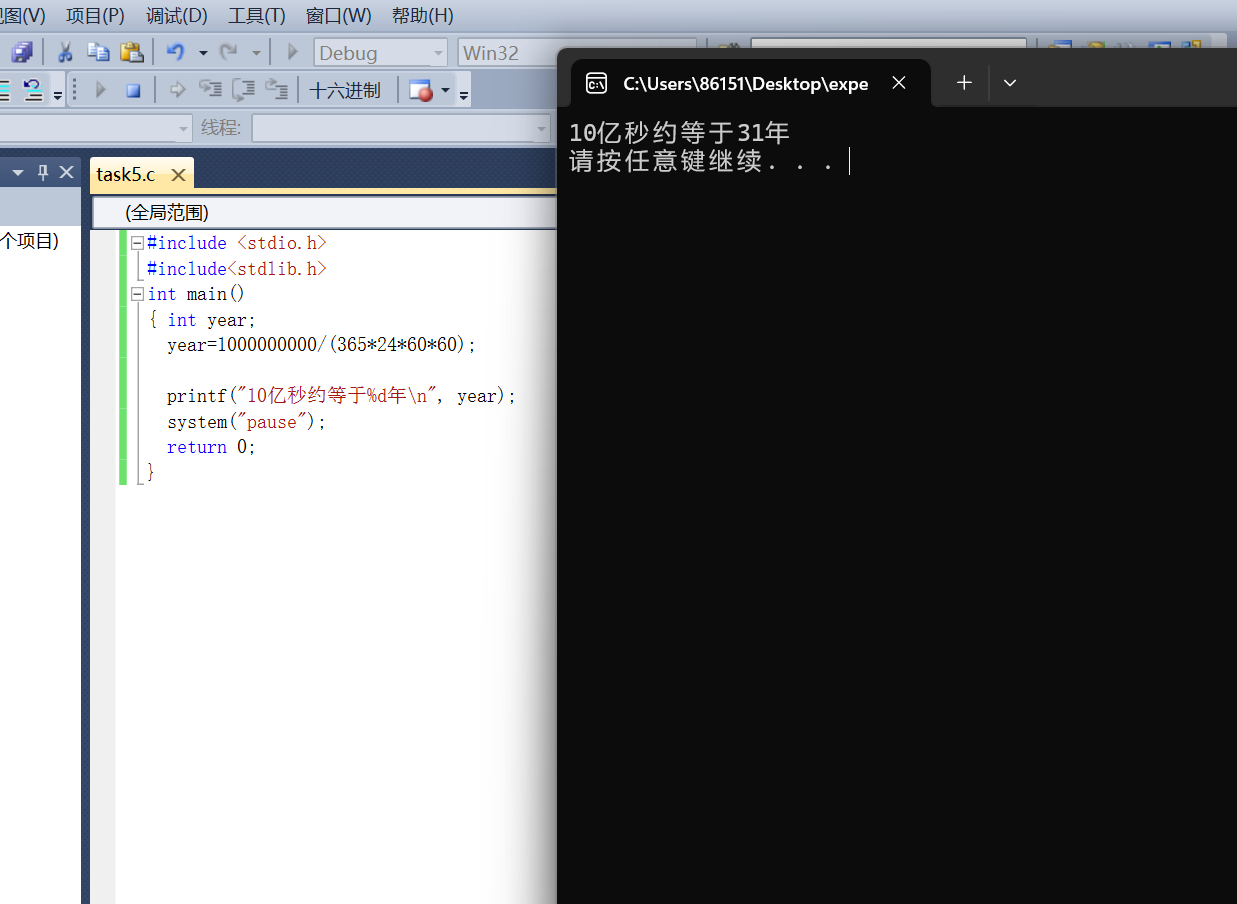
`#include <stdio.h>
include <math.h>
int main()
{ double x, ans;
while(scanf(“%lf”, &x)!=EOF)
{ans = pow(x, 365);
printf(“%.2f的365次方: %.2f\n”, x, ans);
}
return 0;
} `

`#include <stdio.h>
include<stdlib.h>
int main()
{
double C,F;
while(scanf(“%lf”,&C)!=EOF)
{
F=9.00/5.00*C+32.00;
printf(“%.2f\n”,F);
printf(“\n”);
}
return 0;
}`
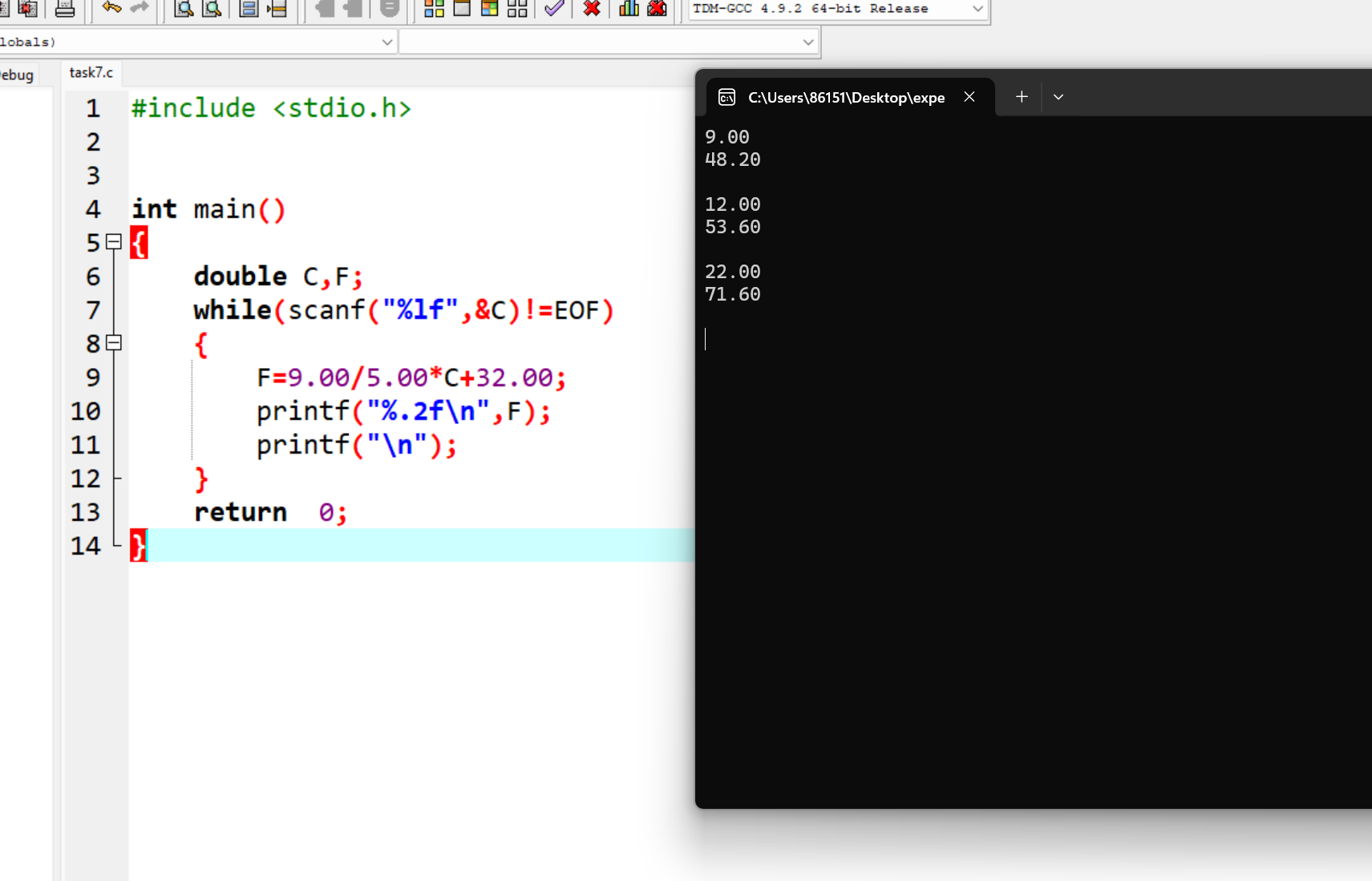
`#include <stdio.h>
include <math.h>
int main()
{
double a, b, c, s;
while(scanf("%lf %lf %lf", &a, &b, &c))
{
double p = (a + b + c) / 2.0;
s = sqrt(p * (p - a) * (p - b) * (p - c));
printf("三角形面积为 %.3lf\n", s);
}
return 0;
}`
